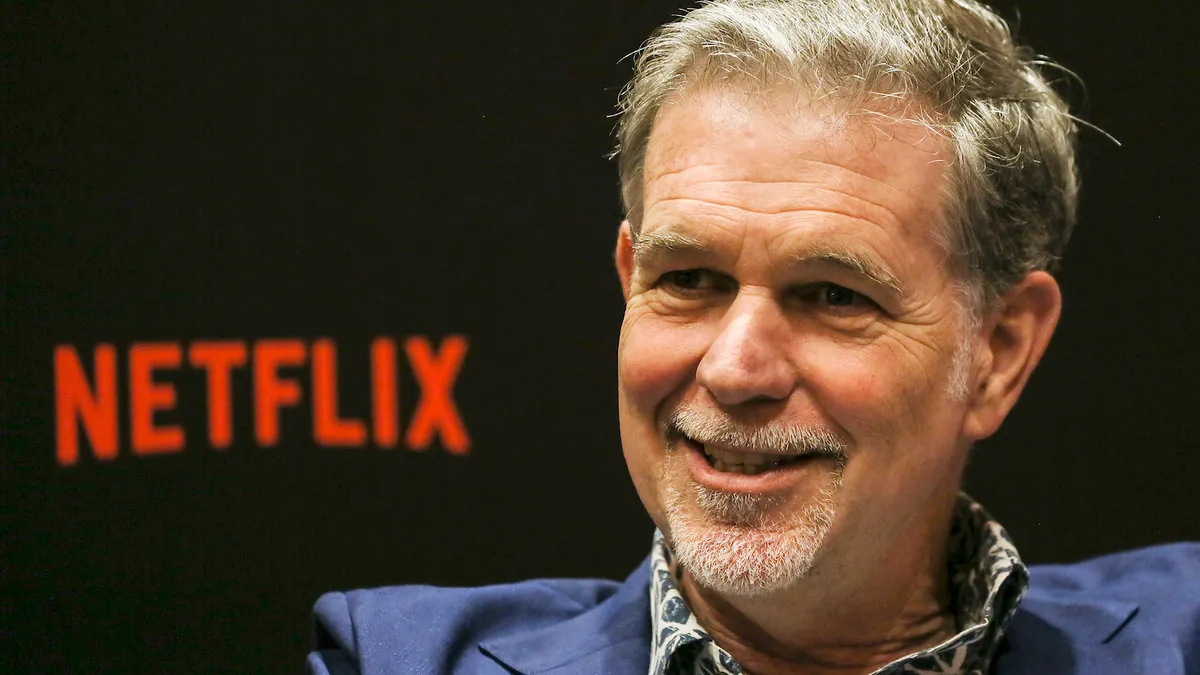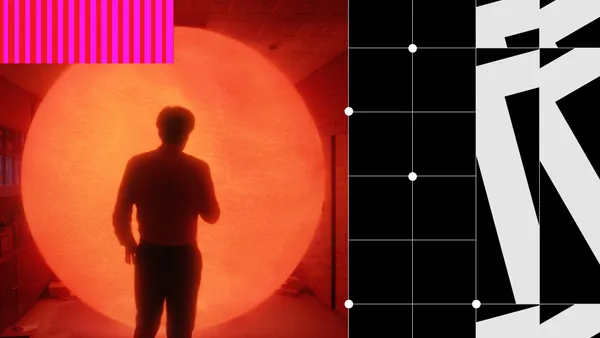UPDATE: June 14, 2022: While people close to Netflix and Roku say an acquisition isn't in the works, Netflix executives have reportedly met with representatives from both Roku and Comcast about those companies handling the sales and/or technical needs of running ads, according to The Information. In addition, Netflix is looking to start running pre-roll ads in the fourth quarter and has discussed placing ads on home screen program tiles, per the report.
Despite evolving into a dominant ad channel, the connected TV (CTV) landscape is in flux as several key players grapple with slowing growth and the continued proliferation of streaming platforms. Now, it appears that two key companies that have seen their stocks tumble this year could provide a solution for each other's problems, with employees at Roku discussing the possibility of an acquisition by Netflix, according to a report from Business Insider.
The rumors come weeks after Netflix — which lost subscribers for the first time in over a decade in Q1 and saw its stock plumment as a result — finally opened the door to the possibility of advertising on its platform, which could come by the end of the year. Meanwhile, Roku's stock has lost nearly 80% of its value since July 2021 as revenue growth has slowed amid lower demand for its services and devices. An acquisition could help both companies meet the new demands of a changing CTV market.
"Netflix’s acquisition of Roku would check all the boxes for both parties and would ensure a sustainable, fruitful path forward. There’s mutual benefit and support in such a deal, which is exactly what Netflix needs to consider as it moves toward an ad-supported model," said Vikrant Mathur, co-founder of ad-supported streaming company Future Today, in emailed comments.
“Netflix and Roku both know where they want to take their business in the future, and in order to stay competitive, they know they need to get on their way quickly," he added.
While Netflix's introduction of advertising would give it a much-needed source of new revenue, it would also require the company to quickly build out its ad-tech infrastructure, solving for the targeting, measurement, attribution and identity resolution capabilities that are table stakes for digital ad platforms. Roku's OneView ad platform — which it launched in 2020 after acquiring demand-side platform Dataxu — could serve as the basis for Netflix's ad stack.
"Roku … operates a well-built ad tech stack that is focused on the streaming video ecosystem and would provide Netflix with many of the needed parts for their planned advertising business," said Matt Spiegel, executive vice president of the media and entertainment vertical at TransUnion, in emailed comments.
For Roku, an acquisition by Netflix would help it maintain its competitive advantage in the CTV space. While it remains the top CTV platform in the U.S., accounting for more than half of all CTV users, according to eMarketer, it faces challenges from smart TV manufacturers including Samsung, LG, Amazon and Vizio that offer their own ad platforms. The boost from integrating with Netflix's content offering and industry relationships could offer "synergy upon synergy," explained Hunter Terry, vice president of solutions consulting and CTV commercial lead at Lotame, in emailed comments.
"Tying in Netflix content, on Roku-enabled smart TVs, with Roku's ad model, the OneView platform would be a leading platform for marketers looking to do any CTV advertising," Terry said.
Some experts and critics of a Netflix-Roku tie-up have pointed to the fact that Netflix has long preferred its device-agnostic existence. Roku began as a project within Netflix, which spun off the company after founder Reed Hastings thought having its own device would limit its ability to license its platform to other devices. But these days, Roku's revenue is mostly from ads, not devices, with platform revenue growing 39% to $646 million versus player revenue shrinking 19% to $86 million in Q1 2022.
An acquisition could continue Roku’s shift in focus towards its ad platform and content offerings, like its ad-supported video on demand (AVOD) platform The Roku Channel. Plus, a company operating both devices and streaming platforms is not unheard of: Amazon's Fire TVs, Prime Video and Freevee (the recently renamed AVOD service IMDb TV) have been able to coexist. And — as with its embrace of ads — Netflix seems more open to changing how it does business as growth stalls.
"The market says it makes no sense, but it couldn't be further from the truth... if it can be done correctly," Lotame's Terry said of a potential Netflix-Roku deal. "Ad tech has proven time and again that many companies are not up to the challenge," noting the difficulties faced by Verizon's sale of Yahoo and AT&T's sale of Xandr. "A flailing Netflix has the opportunity to avoid that list of failures if it can execute."















